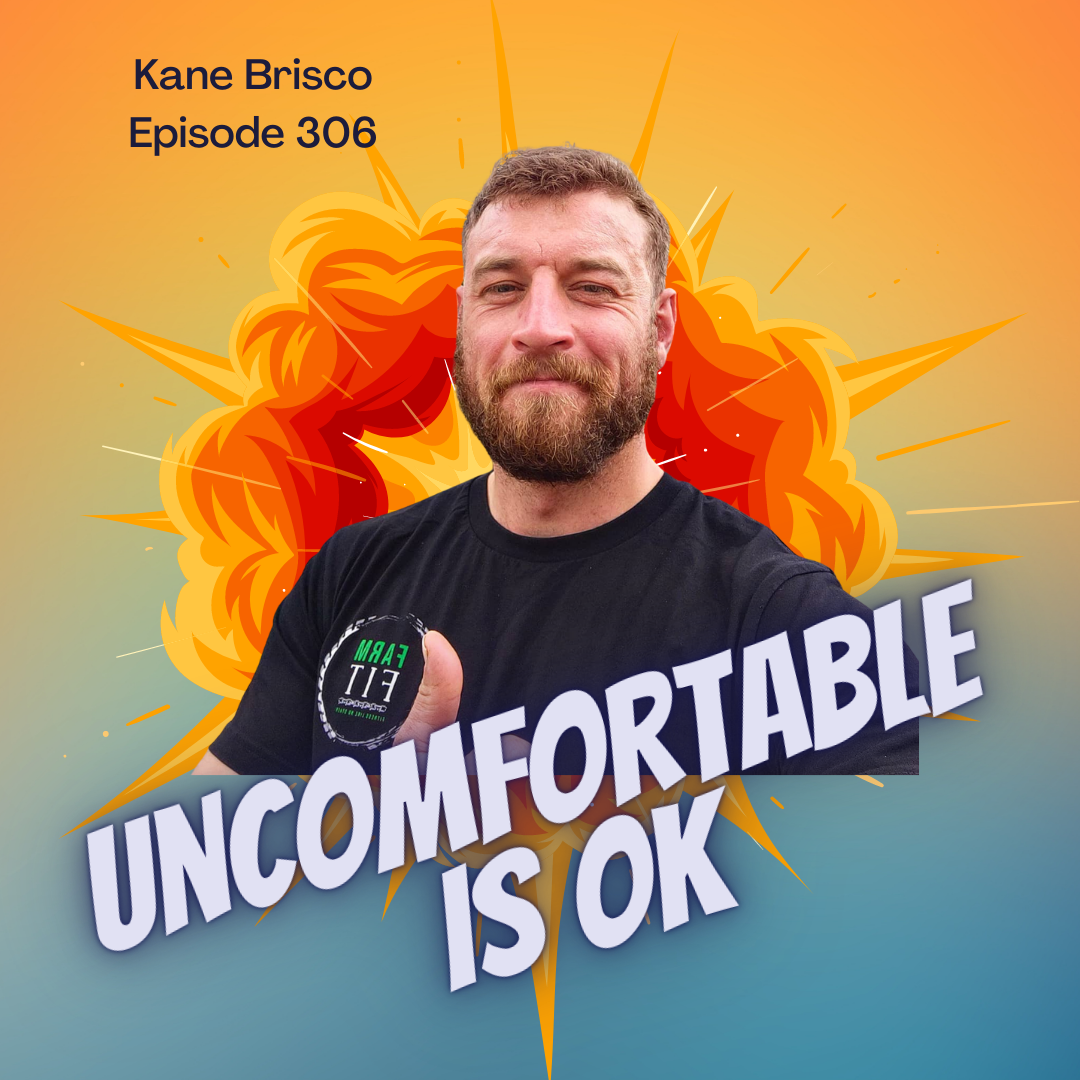Show Notes
When we begin to train ourselves to get out of our comfort zones often the first thing that we notice is that we start to feel anxious about what we are going to do. We may not be fully aware of the anxiety, but often we will experience physical symptoms associated with it. This can include; a raised heart rate, clenching of muscles, breathing more quickly, sweating, and an increased alertness.
Anxiety is a perfectly normal human response. It’s designed for keeping us safe, and was incredibly important. It stopped us entering into potentially dangerous situations, and helped us get out of them if we somehow found ourselves there. Being in a dangerous situation our fight or flight response is heightened and can help our body get ready for action and can increase our stamina and performance. It’s an aptly named response as it helped us fight our way out of this situation or run away from it.
You’ve probably all heard stories of people who have performed what seem like superhuman feats when placed in situations that evoke a very strong fight or flight response. I’ve never met anyone who can create these performances at will, or even create the conditions to generate this performance in themselves. I have a sneaking suspicion that were someone to try creating the conditions then they are probably a psychopath. Some anxiety increases our performance, and we understand that extreme situations often result in extreme feats. However these feats are usually reactive to immediate situations. If we experience too much anxiety it can have the opposite effect on our performance causing it to decrease. Imagine your favourite sports stars. One reason that they are likely your favourite is that they display a consistent level of high performance. Sure they still get nervous going out to play, but they’ve achieved a level of confidence, talent, and experience to allow them to perform in a pressure situation. Think now to a rookie player in the same pressure situation. They’re still talented, they’re likely still confident, however they don’t have the experience of your favourite, they get anxious and sometimes the anxiety overwhelms them and their performance falters because of it.
The relationship between anxiety and performance can be mapped using a Yerkes-Dodson curve. This curve was developed by two psychologists who funnily enough had the names Yerkes and Dodson. On this curve our performance increases with arousal up to a point and then it begins to diminish. The challenge here is to find our optimal level of anxiety where our performance peaks. Too little and we don’t reach peak performance. Too much and our performance begins to diminish. Another issue of pushing too far creates a negative physical response, and often a negative result. This can reinforce the mental constructs that pushing yourself is a bad idea, this reinforces the behavioural patterns we use to stay in our comfort zones.
A further challenge is that this optimal level of anxiety will differ for different tasks. If we think about our sport star example again, a basketball star may be able to sink 3 point shots at will in pressure situations, however will they be able to kick a rugby conversion with a whole team rushing towards them and the home crowd booing them? Our optimal anxiety depends on our level of familiarity with each task, if we’ve been in similar situations previously, and often what is riding on the outcome. Optimal anxiety is also mediated by our current ability to manage anxiety, are we healthy, are we well rested, what other stresses are going on in our life?
Going and hoping may hit our optimal levels of anxiety to achieve peak performance at times, however it’s a very hit and miss approach. Consistently pushing our boundaries a little further each time gets us closer to achieving our optimal anxiety levels and peak performance in a much more structured way, and reduces the chance of us pushing too far. Training to get uncomfortable is super important in our ability to reach peak performance and achieve optimal anxiety.
Support the show on Patreon
Host: Chris Desmond



